What Happens To Your Body When You Eat Raspberries
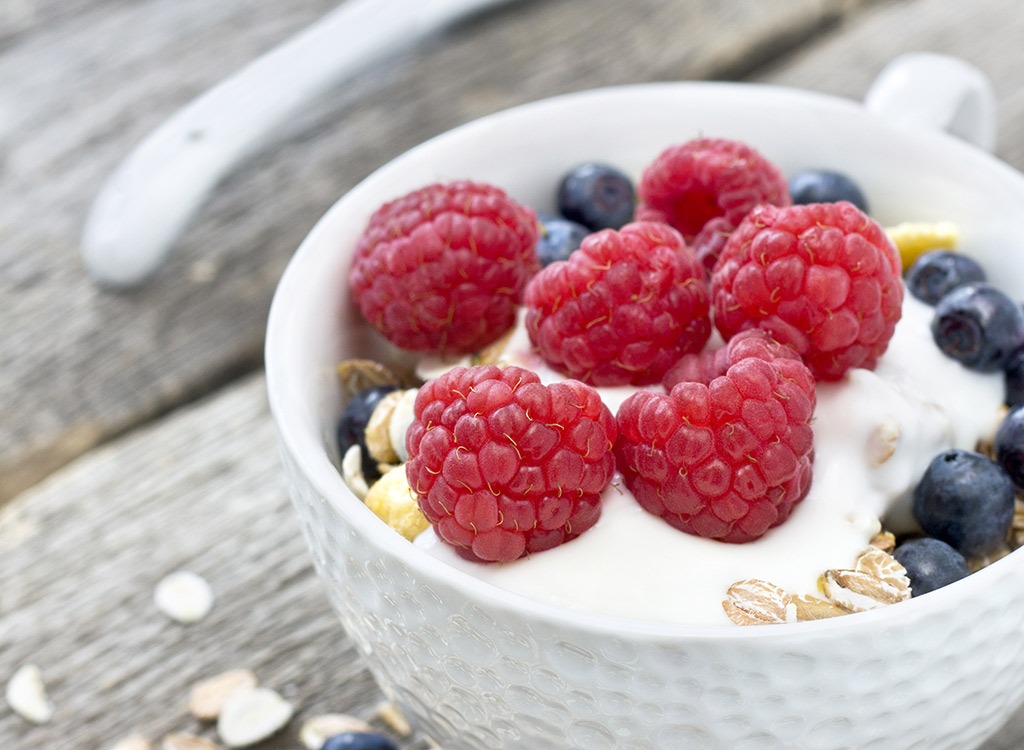
Good things really do come in small packages! While raspberries may not be as popular as other berries on the grocery store shelf—like strawberries or blueberries—when you actually look at how much raspberries can affect your body's health, you'll want to reach for a carton immediately. Raspberries are a small but mighty fruit that really can do your body wonders. But what exactly happens to your body when you eat raspberries? How does so much goodness come in such a small package?
We spoke with a few registered dietitians to determine specifically why eating raspberries is good for your body. From the nutritional benefit to satisfying your sweet cravings, it almost seems like there's nothing the little raspberry can't do. Here's what happens when you eat raspberries with your breakfast (or dessert!), and for even more healthy tips, be sure to check out our list of The 7 Healthiest Foods to Eat Right Now.
Your immune system will be stronger.
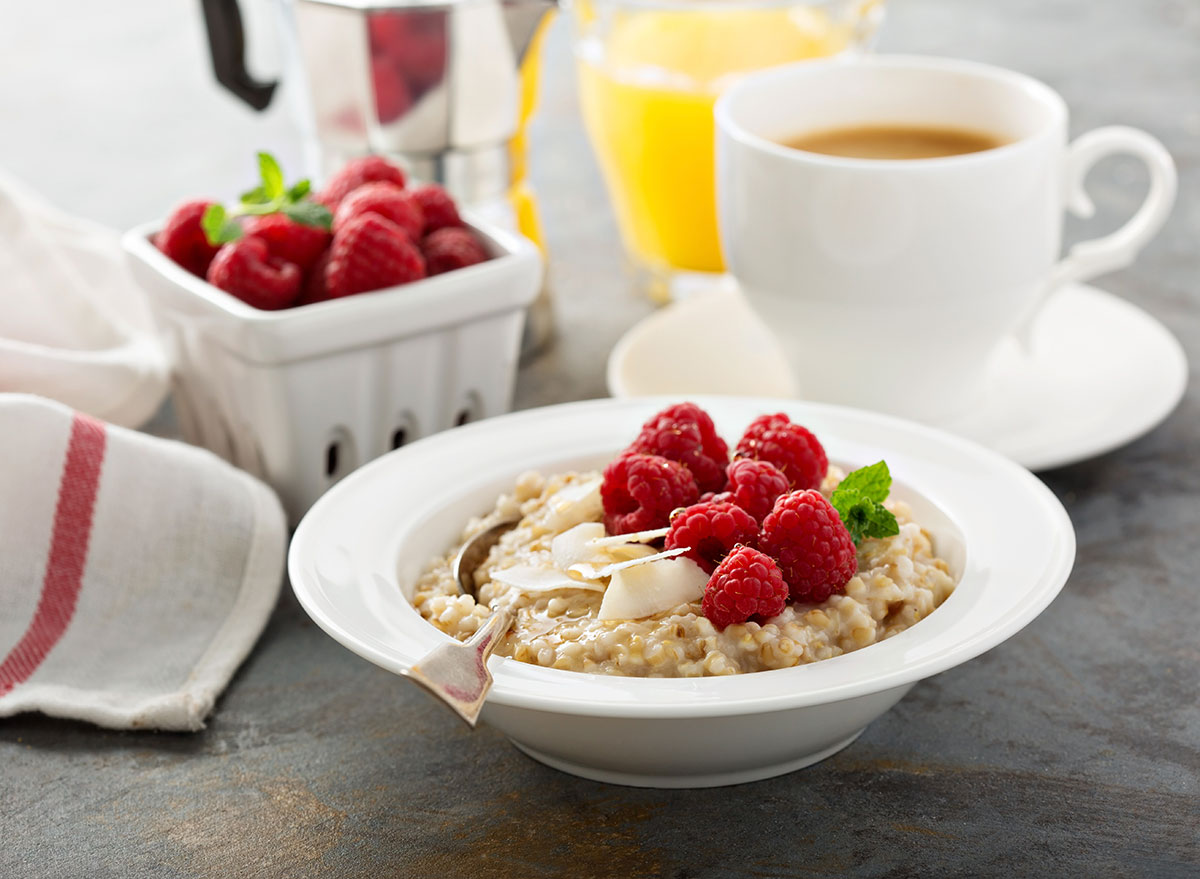
"Raspberries are a nutritious and delicious fruit to support your body's overall health," says Amy Goodson, MS, RD, CSSD, LD, author of The Sports Nutrition Playbook. "Raspberries are rich in many essential nutrients your body needs including fiber, vitamin C, vitamin E, manganese, and vitamin K. The nutrients in raspberries support your immune system and digestive tract, while also acting as anti-inflammatory and antioxidant agents."
Here's Why You Need Antioxidants In Your Diet—And How To Eat More Of Them.
You'll lower your blood pressure.
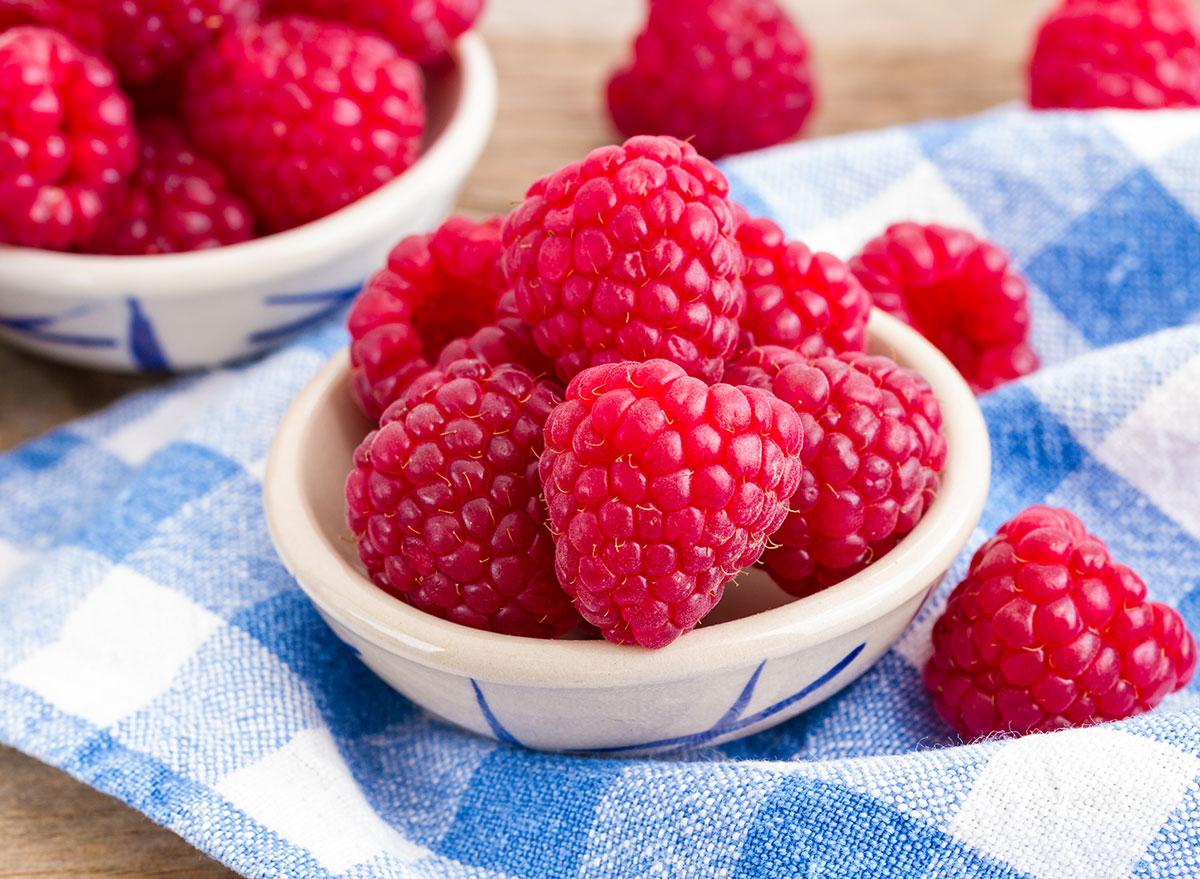
"Raspberries are super healthy and super tasty," says Lisa R Young, PhD, RDN, author of the book Finally Full, Finally Slim. "They are high in the antioxidant vitamin C, perfect for immune health, and just what we need right now. They contain the mineral potassium which may help lower blood pressure."
According to the American Heart Association (AHA), the more potassium you eat, the more sodium you lose when you go to the bathroom. Having less sodium in your system can help ease the tension for your blood vessel walls, which causes high blood pressure. Raspberries contain 186 milligrams of potassium per cup, which is about 5% of the average daily recommended value.
Here are 20 Healthiest Foods That Lower Blood Pressure.
Your bones and skin will be stronger.
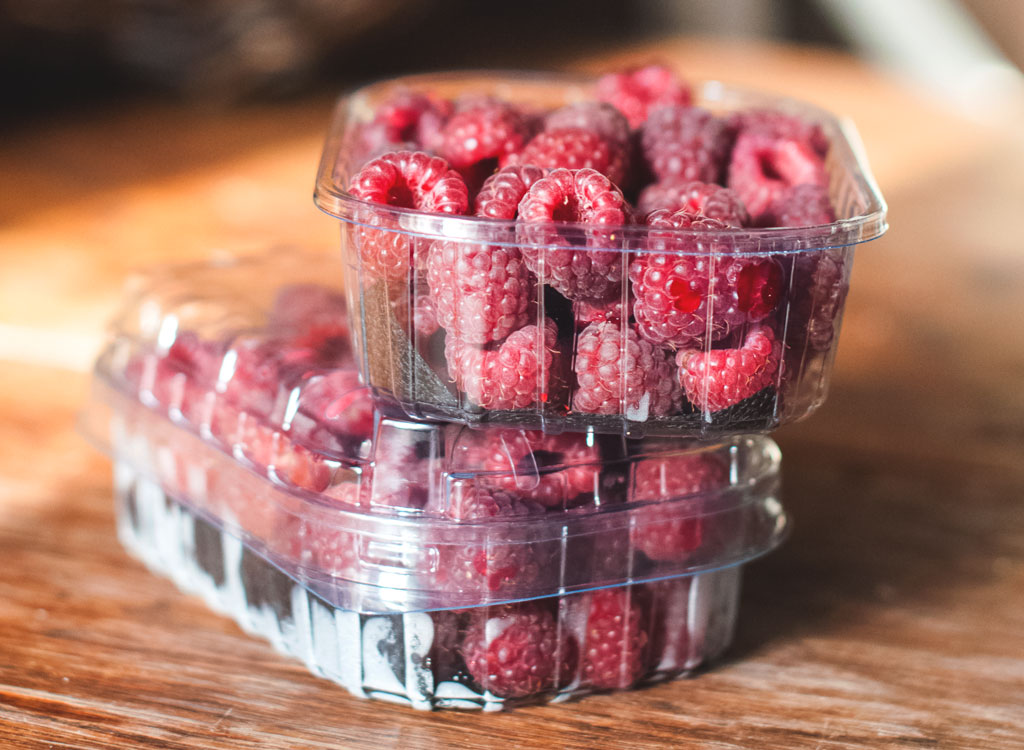
"When you eat raspberries, your body gets a huge boost of manganese," says Megan Byrd, RD from The Oregon Dietitian. "Manganese is known for helping to keep our skin healthy, support strong bones, reducing oxidative stress, and even helps to regulate carbohydrate metabolism."
Get even more healthy tips straight to your inbox by signing up for our newsletter!
You'll get a boost of fiber.

"They are also high in fiber and relatively low in calories, perfect for weight loss," says Young.
Did you know that raspberries and other berries of the like (blackberries, boysenberries, etc.) have the highest amount of fiber compared to any other fruit? One cup of raspberries contains 8 grams of dietary fiber, which is 32% of the average daily recommended value!
On average, most Americans don't get enough fiber in their diet. The AHA says you should get between 25 to 30 grams of fiber per day, but the average person only gets around 10 to 15 grams. Eating raspberries with your meal, or even with your dessert, is an easy and tasty way to boost that fiber intake. Like Young states, the high fiber and low-calorie count makes raspberries the best fruit to eat for weight loss!
You'll satisfy your sweet tooth.
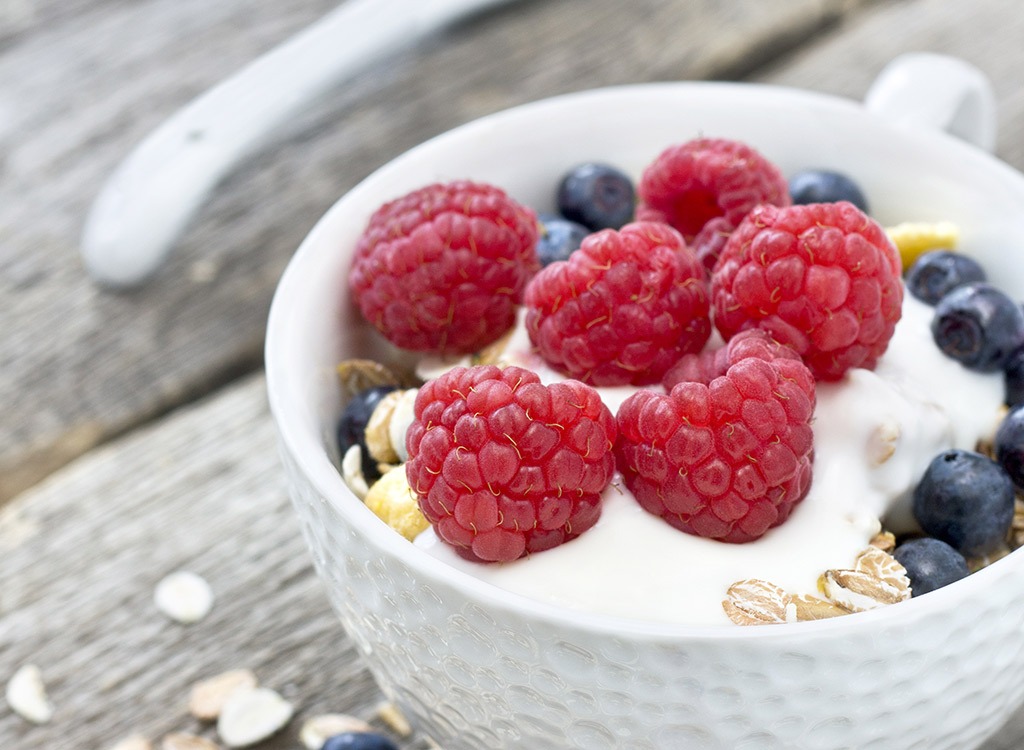
There's a reason why people say that fruit is nature's candy—it's high in sugar! Fructose, to be exact. Fructose is a sugar that comes from fruit plants, which is why it's important to portion out your fruit during the day and not overdo it.
However, compared to other fruits, raspberries are still pretty low in sugar, with only 5 grams of it (compared to an apple, which has around 19 grams). But it still satisfies that sweet tooth you may have during that afternoon slump.
"Raspberries are a great way to add nutrients into your diet while fulfilling your sweet tooth," says Goodson. "Try using raspberries as a topping to yogurt or salad, in a smoothie, in a muffin, or even alone as a quick refreshing snack."
"Raspberries are fairly low in sugar and combined with their role in helping to break down carbohydrates, they make an excellent food choice for those with diabetes," says Byrd.
Plus, you don't always have to have fresh raspberries on hand! Here's why berries are The One Frozen Food You Should Always Have In Your Freezer.








